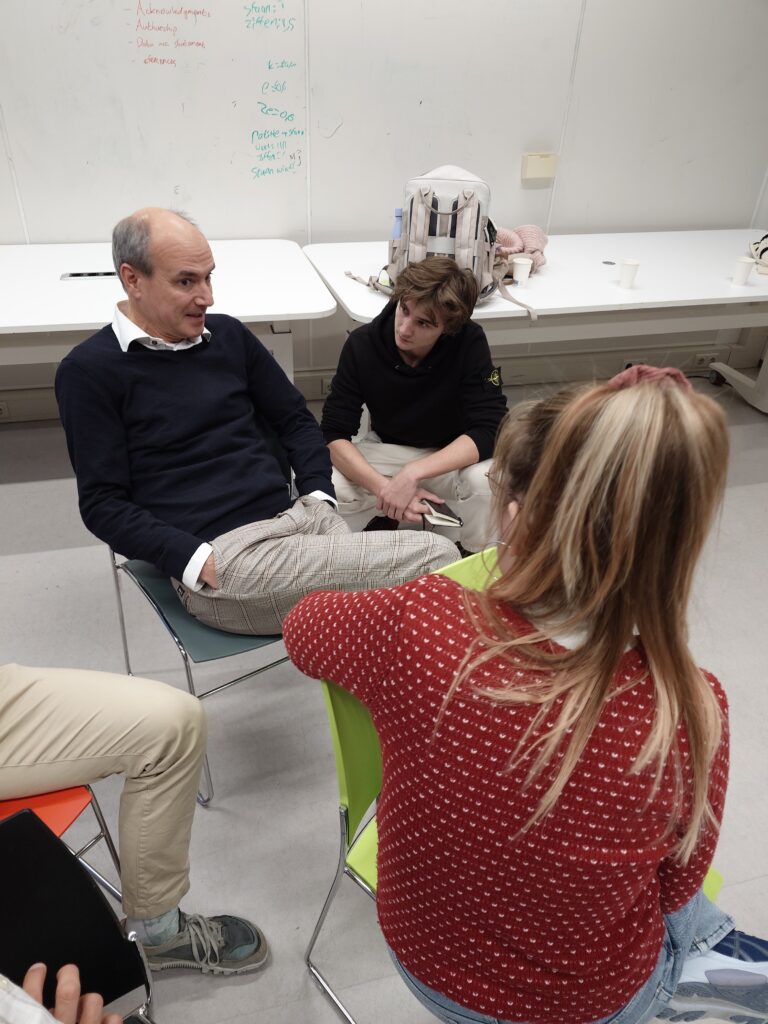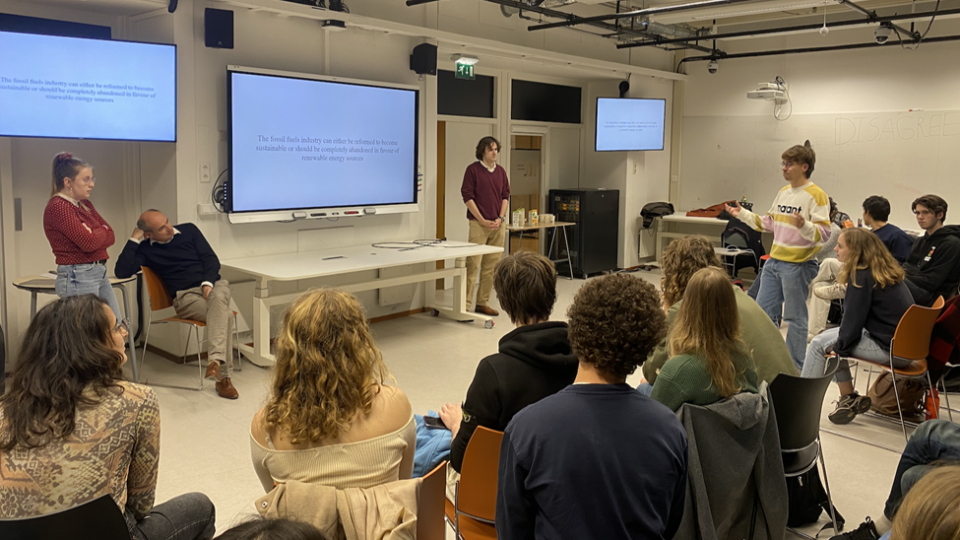The evening at Utrecht University was marked by an engaging and interactive discussion led by Professor Bert Weckhuysen, a renowned figure in catalysis research. The event was filled with many stories and interactive. Weckhuysen shared his personal journey and scientific insights, touching on themes of energy transition, sustainability, and the role of universities in shaping the future of energy. The session culminated in thought-provoking activities sparking debates on the precision of language in scientific discourse and the interplay between technology and society. This format encouraged active participation and critical thinking, making for a dynamic and educational evening.

In a candid discussion at Utrecht University, Professor Bert Weckhuysen, a renowned figure in catalysis research, shared insights from his 24-year tenure and vision for the future of energy transition.
From Small-Town Belgium to Global Science
Weckhuysen’s journey began in a village near Leuven, Belgium, a city steeped in academic tradition. “I never thought at 18 that I would become a professor,” he admitted, highlighting the unpredictable nature of career paths. His fascination with chemistry was sparked by an eccentric high school teacher whose tie once caught fire during an experiment—a moment now seemingly prescient given Weckhuysen’s fiery career trajectory.
The journey included many of the personal growths that come with academic pursuits. His first solo trip abroad as a Ph.D. student to rainy Manchester marked a pivotal moment. “I had to learn to overcome and stand on my own feet,” Weckhuysen reflected, noting the stark contrast to today’s interconnected world. The evening was filled with many stories of his travels, challenges, and uncertainties that shaped his resilience and global perspective.
At just 30 years old, Weckhuysen became a full professor at Utrecht University, a position he has held for 24 years. His work on the catalytic conversion of fossil feedstocks into sustainable materials has earned him numerous accolades, including the prestigious Spinoza Prize, often referred to as the “Dutch Nobel Prize”.
The Refinery of the Future
Professor Weckhuysen’s expertise in catalysis, allowed students to get a glimpse into his true scientific approach and his restless pursuit of innovation. His work on the catalytic conversion of fossil feedstocks into sustainable materials is a cornerstone of the “refinery of the future” concept, which aims to transform traditional petrochemical processes into more environmentally friendly operations.
“If it’s mainstream, I step out”, stated Weckhuysen revealing a deeper aspect of his scientific philosophy, a deep commitment to pushing boundaries and exploring uncharted territories outside of conventional chemistry and energy research.
Weckhuysen emphasized the importance of precision in discussing sustainability and technology. He outlined the Technology Readiness Levels (TRL), explaining, “In universities, we do levels 1-4; industry does 5-6, and that’s where you need all the money”. This framework illuminates the collaborative nature of innovation between academia and industry.
“Academia isn’t an industry, very rarely there is a final physical product…the product is you, the students learning”.

Bridging Science and Society
The professor stressed that technological solutions alone are insufficient. “If society doesn’t accept it, it fails,” he stated, highlighting the need for social acceptance in sustainability efforts.
As Utrecht University continues to lead in energy transition research, Weckhuysen’s insights offer a glimpse into the complex interplay between scientific advancement and societal progress. His journey from a curious student to a leading researcher serves as an inspiration for the next generation of scientists tackling global challenges.
This article was written by Eliza Jeromskaya, Da Vinci Project 2024-2025 student

